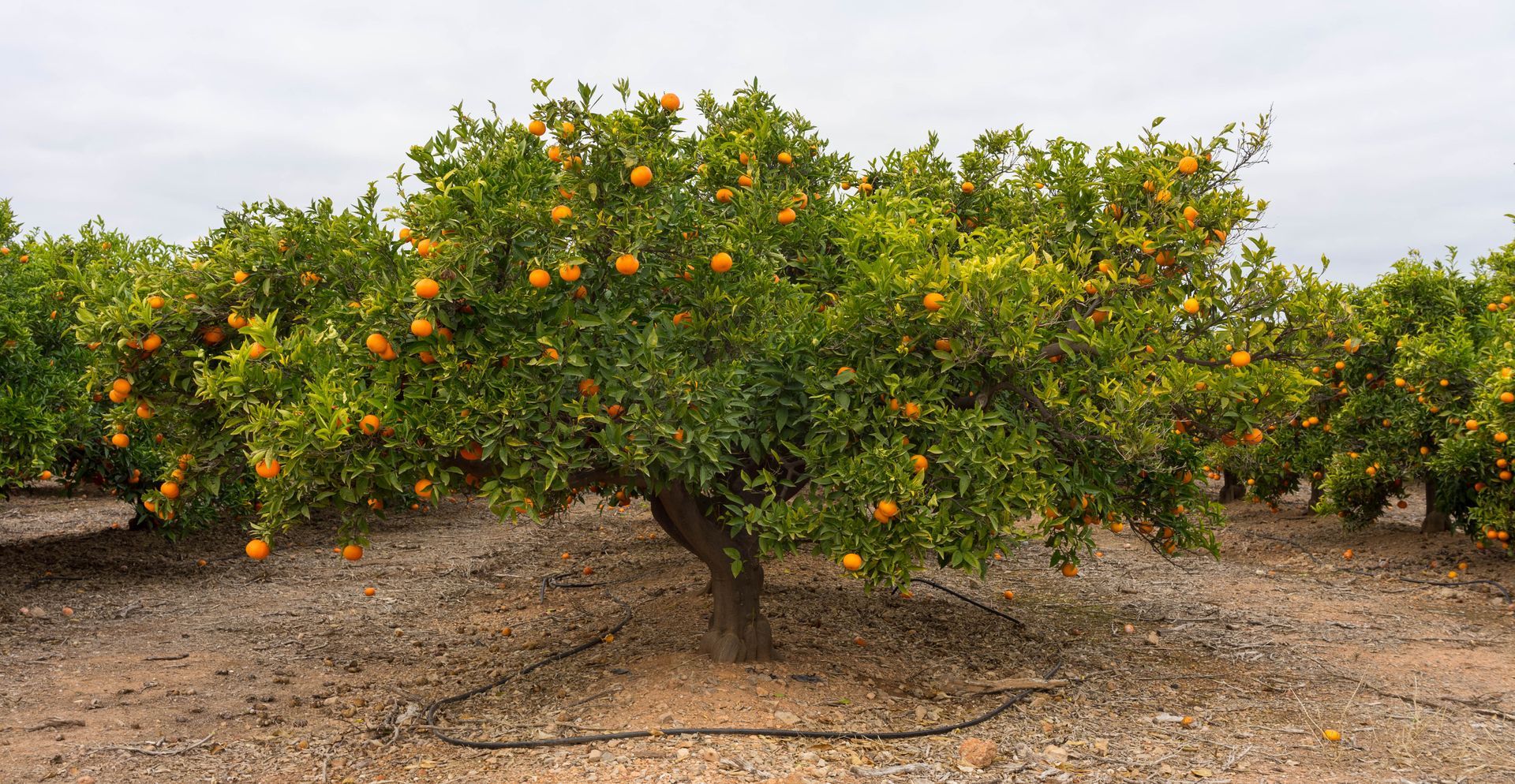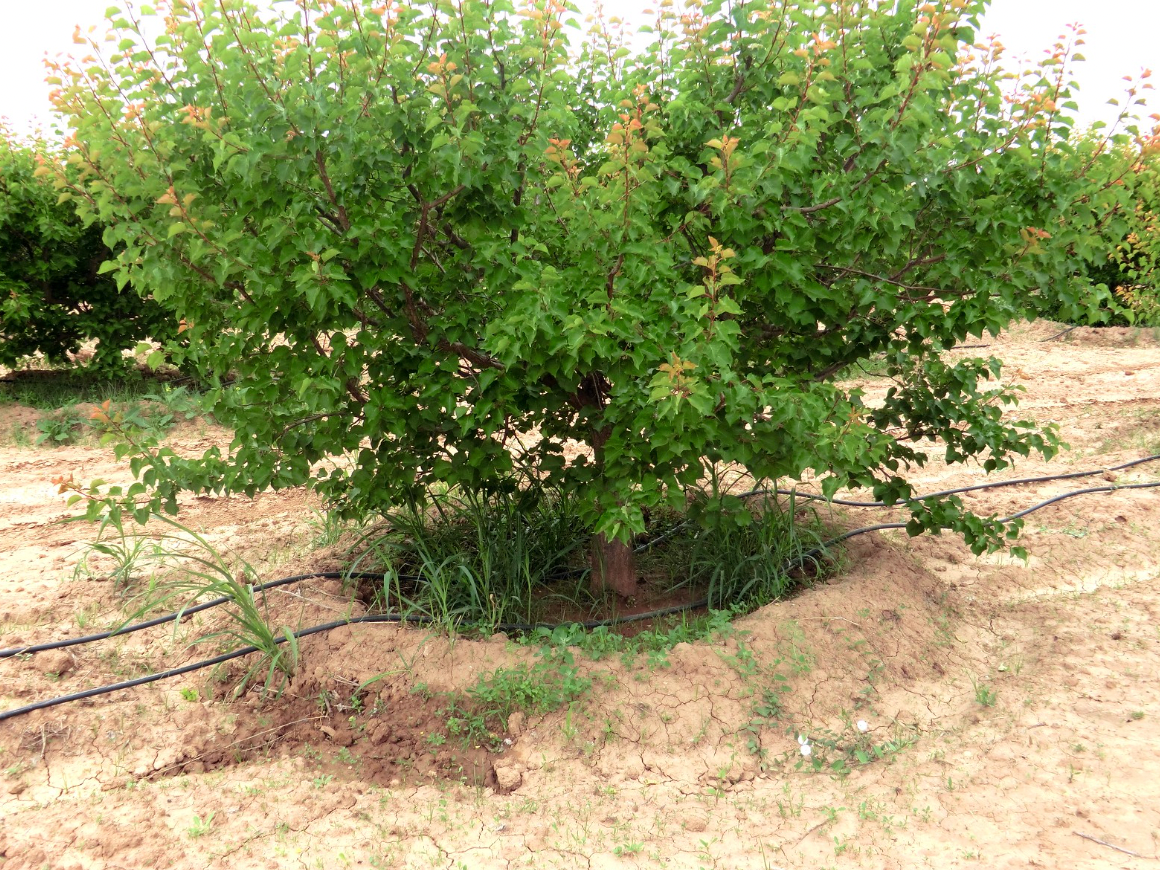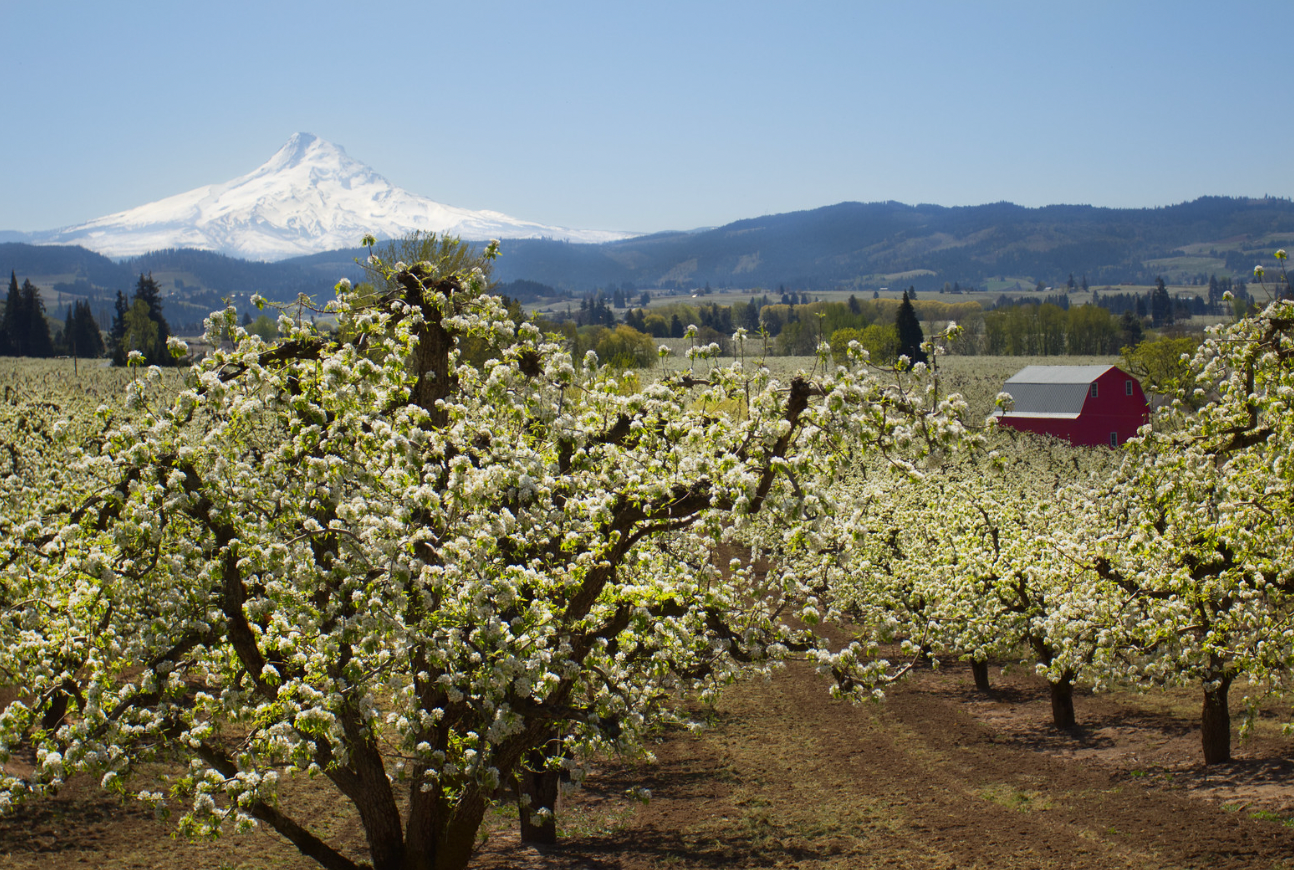How To Install Drip Irrigation For Trees

Drip irrigation for trees is pretty much the same as for potted plants, containers or raised beds. The main difference here is you are running a line out to a tree, and that usually means making a drip line circle around the tree. Not difficult, but we'll explain more below.
Table of Contents
Irrigating your trees is a simple and effective way to make sure they get the water they need.
Here's how you do it.
Drip Irrigation for Trees: Everything You Need To Know Tree Drip Lines

Installing drip irrigation for trees involves running drip tubing out to the tree passed the roots of the tree, or by creating a tree watering ring around the root zone of the trees. But all drip irrigation works the same - by efficiently delivering water to a plan't root zone.
Supplies Needed
- 1/2" Mainline tubing
- Header Assembly
- Hole Punch
- 1/4" Barb connectors
- 1/4" Barb T
- Stakes
- 1/4" Dripline Tubing
- 1/4" Dripline Tubing with Drip Emitters
- Tubing Cutters
RELATED:
What Is Drip Irrigation?
Running the Mainline Tubing
Running the mainline tubing is going to be roughly the same as the other irrigation articles we've covered so we won't go to in-depth here. Nonetheless, you need to connect your head assembly to a water source, connect 1/2" tubing to the head assembly, and then run the tubing out to where the tree is planted.
Creating The Tree Watering Ring
If you are making the watering ring from the drip line tubing with emitters, then go ahead and cut a piece large enough to match the diameter of the tree's canopy. If you can't cut a full circle, you can cut two half circles and connect them together with the 1/4" barb connectors to form a circle around the tree.
Be sure to get the diameter correct. Making it wide enough to hit the edge of the tree canopy should be enough to water the tree roots. Tree roots of newly planted trees need deep watering to ensure the tree establishes and grows properly. More established trees still need this type of watering to maintain proper health.
Inserting the 1/4" T Connector
No matter how you do it, you will need to cut a spot in the circle to install a 1/4" Barb T so that you can connect the drip lines back to your mainline tubing.
Connecting the Tree Watering Ring to the Mainline Tubing
At this point, you should have a completed circle of drip line around the base of the tree. The circle should have a 1/4" T connecting both halves. Now, you want to cut enough of the 1/4" dripline tubing without emitters so that you can connect it to the mainline. The length will be unique for every situation.
Use the hole punch to make a hole in the 1/2" drip line tubing for a 1/4" connector. From there, insert the 1/4" into the mainline of the drip irrigation system. Run whatever length of 1/4" drip line you need to connect the drip line to the tree watering ring. Again, this will be dependent on your garden. Some will need longer pieces of both drip line and mainline, others might need short. Just depends on how you created the drip irrigation system.
Start the System
Now you can flush the system of any debris. Run water through out the system for a minute or so to make sure you clear out anything that could be clogging the lines. Water trees on a regular watering schedule.
In the Spring or the Fall, water then once a week. In the summer, water trees every other day. The winter will depend on where you live. Once a week is a good rule of thumb but it will depend on the type of tree. Pick whatever watering schedule is best for the health of the tree.

Sweet New Earth's Final Say on Drip Irrigation for Trees
That's pretty much it! Drip irrigation systems for trees are pretty simple. Mature trees need far less water watering as they are established trees. But young trees need tons of water for their root system.
Each tree will have different requirements, doesn't matter if its front yard trees or back yard, but most drip irrigation kits have plenty of equipment to cover most species - especially if you are growing only one or two trees.
FAQs

Carl Anderson
Carl Anderson is an avid outdoorsman with a keen interest in writing about and reviewing tools. He has over 20 years of writing experience and the only time he isn't feverishly typing away at his computer is when he's outside in nature working on his projects. You can learn more about him here.
Join our community!
Join to receive guides, insights, and the latest gardening deals!
